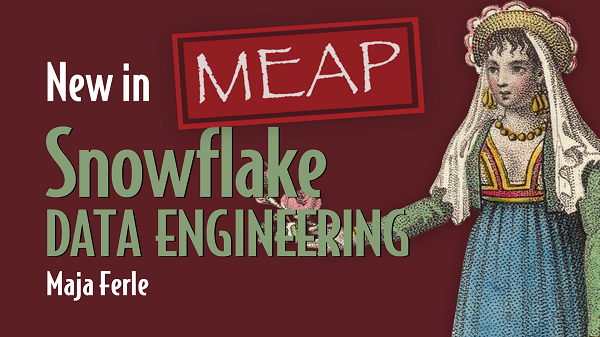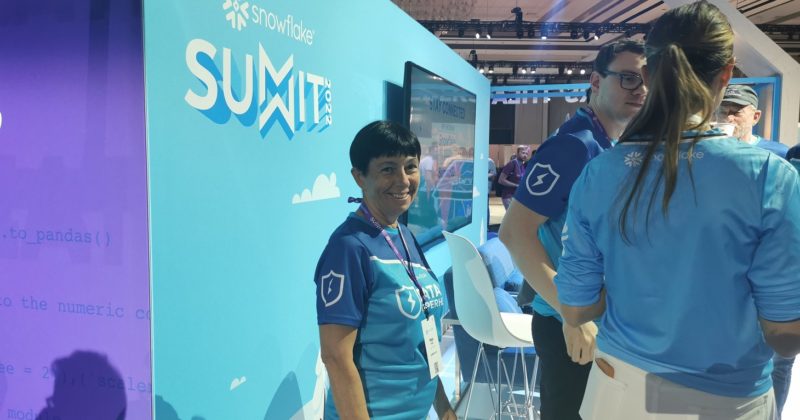
Snowflake Data Engineering
Snowflake Data Engineering is my latest book in the making. It's available in the Manning Early Access Program (MEAP) where you get access to new chapters as I write them.
In this book, you'll learn how to build data pipelines that ingest data from source systems and store the data in Snowflake. The chapters are organized so that you start by building a simple, basic data pipeline and add increasingly complex functionality.
Some of the functionalities covered include ingesting structured and semi-structured data, setting up continuous ingestion with Snowpipe, transforming the data in Snowpark, augmenting your data with generative AI, optimizing performance and cost, designing robust data pipelines, incorporating CI/CD, and much more.
Currently available chapters:
Data Engineering with Snowflake
Creating your First Data Pipeline
Best Practices for Data Staging
Transforming Data
Continuous Data Ingestion
Executing Code Natively with Snowpark
Stay tuned for more information and updates as new chapters become available.
Here is the link to the MEAP: https://www.manning.com/books/snowflake-data-engineering...








